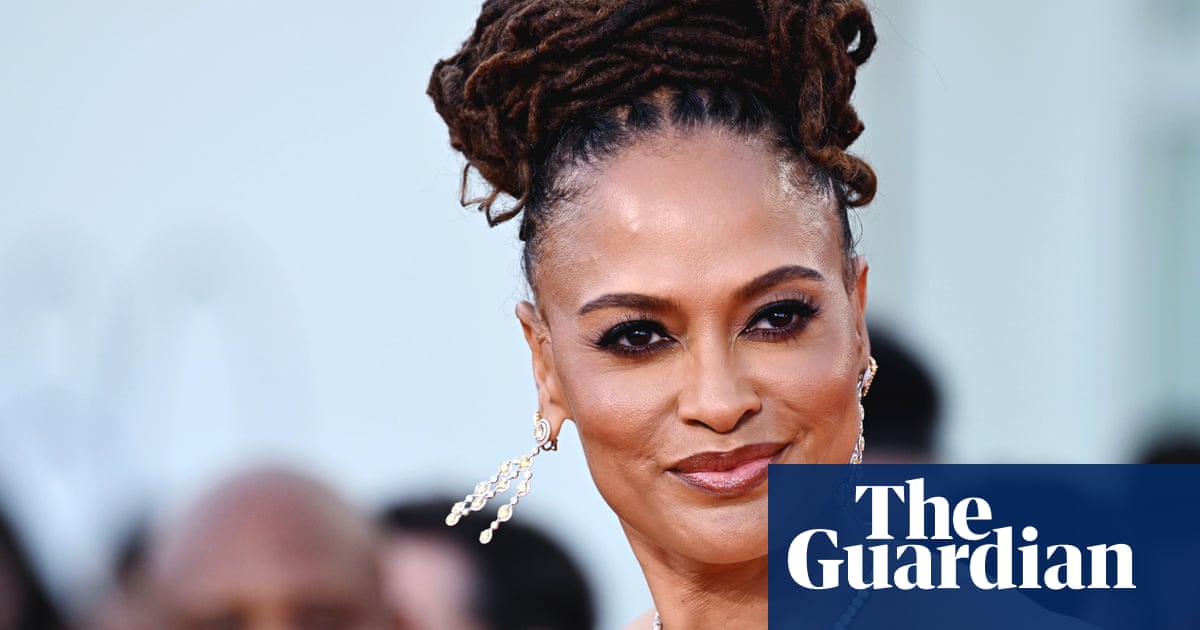Ava DuVernay, an Oscar-nominated and Emmy-winning director, has urged artists and historians to hold the line against a “criminal” US president at a time when “truth itself is under revision”.
DuVernay, whose films include Selma, which chronicles Martin Luther King’s campaign for voting rights, issued the rallying cry whilereceiving an awardat the Smithsonian National Museum of American History in Washington.
The ceremony came against the backdrop of Donald Trumpsigning an executive orderthat seeks to purge “improper, divisive, or anti-American ideology” from the Smithsonian Institution. The president has also seized control of the John F Kennedy Center for the Performing Arts and fired the librarian of Congress, Carla Hayden.
Asked if she is alarmed by Trump’s assault on arts and culture, DuVernay told the Guardian: “Certainly. But not surprised. When you elect a criminal you should expect crimes.”
Trump is the first convicted felon to serve as president, having beenfound guiltylast year on 34 counts of falsifying business records to conceal a hush-money payment to the adult film performer Stormy Daniels. Yet his election did not surprise DuVernay. “It feels right in line,” the 52-year-old mused. “I study history. So.”
Selma was the first film directed by an African American woman to be nominated for a best picture Oscar. DuVernay’s other works include13th, a documentary about racial injustice and mass incarceration, andOrigin, an adaptation of the historian Isabel Wilkerson’s book Caste.
On Thursday she became the first director, writer and producer to receive the Smithsonian’s Great Americans Medal, which recognises lifetime contributions that embody American ideals and ideas. Previous honourees include the secretary of state Madeleine Albright, general Colin Powell, musician Paul Simon, doctorAnthony Fauciand supreme court justice Ruth Bader Ginsburg (posthumously).
In an acceptance speech that drew a standing ovation at theNational Museum of American History, DuVernay did not mention Trump by name but offered a stirring defence of the Smithsonian, which she described as “an institution that understands the weight of history and the wonder of telling it well.
“That understanding feels especially urgent now at a time when truth itself is under revision and fear feels like an animating force. Fear of mirrors, fear of memory, fear of the full American story told in its dazzling complexity and devastating contradictions.”
The film-maker, who grew up in Compton, California, continued: “History is not a weapon to be sheathed when inconvenient. It’s not a bedtime story meant to lull us to sleep. It is a river flowing deep and often turbulent and the Smithsonian has long been the bridge that lets us cross with care. We know that what is sometimes labelled improper ideology is in fact connective. That what some call distorted is simply a new perspective, long buried, now revealed.“Let me tell you about a child who walks into the Smithsonian museums and sees a photograph of a woman who looks like her mother or grandmother, standing tall in protest or in prayer or in pride. Let me tell you about a teacher who brings students here because their textbooks do not speak of redlining or Tulsa or internment camps or Stonewall.
“Let me tell you about families – Black, white, Native, immigrant – who walk through the doors of Smithsonian museums and feel that this country might just make room for them after all. That is not indoctrination. That is belonging. That is education. That is democracy.”
DuVernay paid tribute to the Smithsonian secretary,Lonnie Bunch, for confronting the contradictions in America’s founding and illuminating the fault lines in its systems. “Because the truth is there is no honour in history that flatters itself,” she said. “There is no integrity in memory that only remembers some and there’s no future in forgetting.
“To those who would close their eyes to injustice, who would silence the voices of our elders, our ancestors, our scholars, our artists, I offer this. We will not comply with forgetting. We will not make myths in place of memory. We will not trade the truth for contortions in comfort.
“Instead we will gather, we will remember, we will teach, we will share, we will tell it all. Let us hold that line and let us remind those who try to restore a narrow divisive view of the past that the future belongs to the whole of us. And even when the current swell is upon us, the bridge will hold because truth deserves passage. And with the Smithsonian and this museum we do not cross alone.”
Founded in 1846,the Smithsonianis the world’s biggest museum, education and research complex. But Trump’s executive order, issued in March, argues that the institution has recently “come under the influence of a divisive, race-centered ideology” and calls on Vice-President JD Vance, a member of the Smithsonian’s board of regents, to lead a counteroffensive.
In an interviewAnthea Hartig, director of the National Museum of American History, said her institution had not felt political pressure yet. “We put ourselves through our own paces and we need to be able to defend our scholarship, our choice of interpretation and our framing and then engage in honest discourse. So far it’s been a very honest and forthright exchange.”
She added: “We appreciate everyone’s concern deeply and we truly ask them to continue to support us and to visit and to engage in the big questions of history that we present.”
